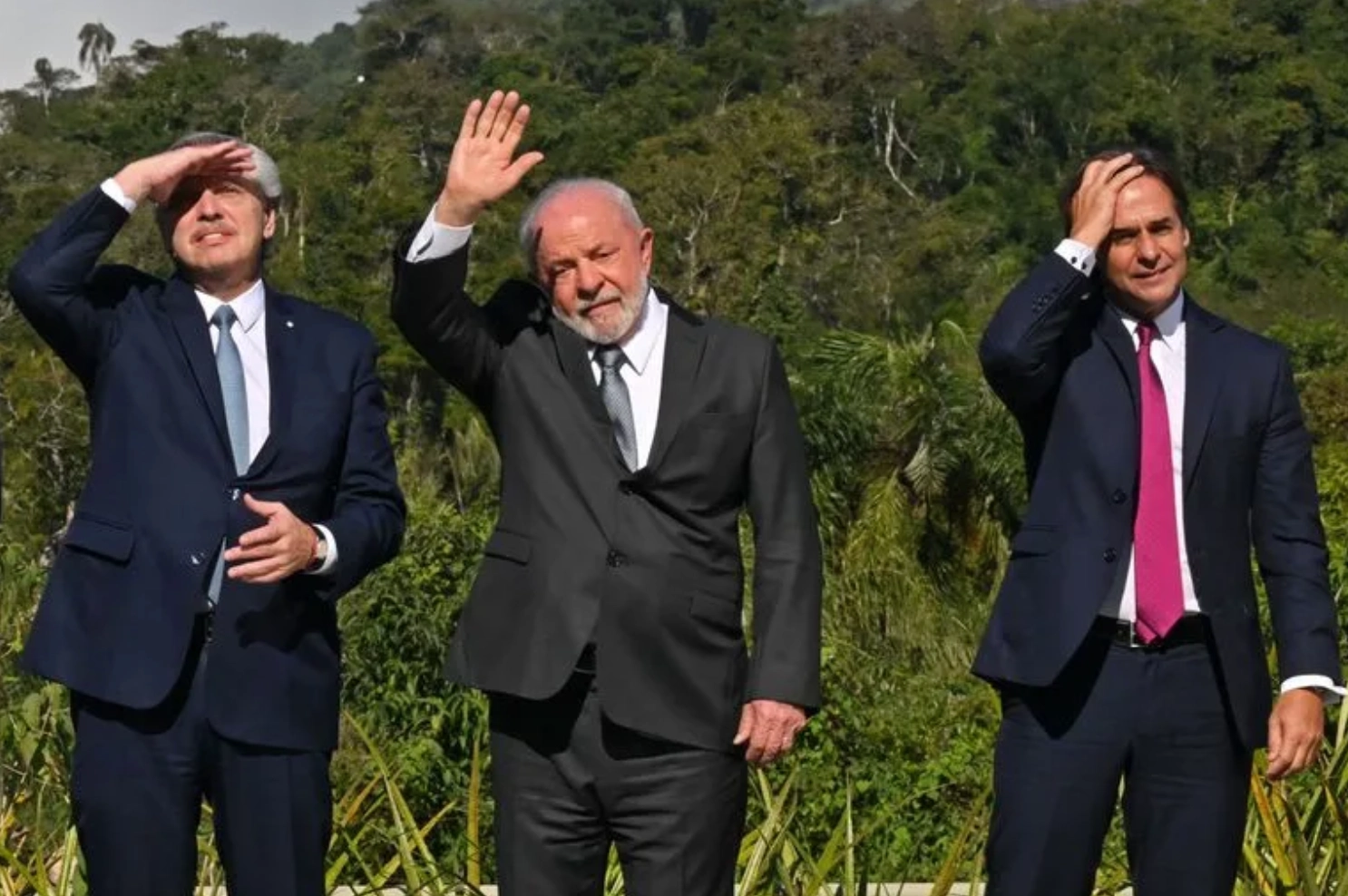South American regionalism is facing a complex juncture. Despite the expectations generated by the return of Luiz Inácio Lula da Silva in Brazil, there is still a lack of clarity regarding three fundamental aspects: the structure that should underpin regional cooperation and integration (What?), the appropriate methods to carry it out (How?) and, most importantly, the purpose of this cooperation and integration (Why?).
Brasília’s Summit
On May 30, in Brasília, Lula received South American countries’ leaders for a historic summit after nine years without meeting. The balance of the summit is ambiguous: it was broad and representative and evidenced Lula’s convening power in the region. But the presence of all leaders did not necessarily reflect full support for the Brazilian government’s political leadership.
The traditional leader did not succeed in converging interests in pursuit of a common goal at the regional level. Today’s Lula is not the same as the 2000s’ Lula, nor are the rest of the governments. Lula’s great virtue of reaching consensus among governments with different political-ideological visions failed at this summit. This time, he was not even able to unify visions among leftist governments, which, united under a generous definition of left, present differences in their models and face very diverse realities.
These divergences were exposed in the final declaration, ironically called the “Brasília Consensus”, in which the main objective of the Brazilian government was truncated: the Union of South American Nations (UNASUR) was not mentioned. The South American summit made it clear that the rebirth of this bloc is further away than Lula da Silva’s return made it seem.
The summit began with a stigma since previously the Brazilian president met with Nicolás Maduro and reestablished diplomatic relations between Brazil and Venezuela. On that occasion, Lula stated that Venezuela is the victim of a “constructed narrative”. The exaggerated show of support for the Maduro regime, in order to reestablish its position in South America, did not generate an environment conducive to consensus. In fact, it caused both Uruguay’s President Luis Lacalle Pou and Chile’s President Gabriel Boric to coincide in their criticism of both Maduro and the summit’s host.
This shows that the situation in Venezuela continues to be an open wound within progressivism. This injury to unity has not been left behind in pursuit of pragmatism to overcome differences. On the contrary, continues to permeate regional relations.
The meeting in Brasília made it clear, then, that the new wave of progressive leaders is not succeeding in revitalizing South American regionalism, which is in a stage of exhaustion. It is an exhausted regionalism that is unable to take off, and faces different challenges for its progress and consolidation, mainly in three key aspects: its form, functionality and purpose.
The three problems of South American Regionalism
Form refers to the organizational structure and the way in which regional schemes operate. Currently, it is not clear in what format South American cooperation and integration should be pursued. The Brasília summit showed that there is no consensus to revitalize UNASUR.
Following Brazil’s return to UNASUR, Argentina, and Colombia have also returned, but Chile has yet to do so. Also missing are countries that live in critical situations, such as Ecuador or Peru, or countries governed by the right wing, such as Paraguay and Uruguay. It will be key to see what will happen in case Argentina experiences a change of political signs after December.
Several presidents contemplate the option of joining or revitalizing organizations such as CELAC, UNASUR, PROSUR, or MERCOSUR indistinctly. This suggests that, for South American presidents, all approaches appear to be viable. The Colombian government, under Gustavo Petro, seeks to revitalize the Andean community with the reincorporation of Venezuela, but Argentina and Brazil aim for Venezuela to return to Mercosur. These divergent positions reflect the existence of different perspectives and priorities among South American countries.
In the early years of the 21st century, “light regionalism” was the dominant concept. In the current decade, regional governance is characterized by institutions with even less binding powers. However, it is peculiar that, despite this, countries show a marked reluctance to participate in or return to regional schemes.
Function, on the other hand, refers to the role played by a regional organization. What aspects are to be handled through regional integration? The Brasília Consensus, which covers more than 30 issues to be addressed without a visible hierarchy, is a sign of the lack of clarity and coherence in the visions of South American governments, which makes it even more difficult to address the most urgent issues.
Functional or sectoral cooperation could play a key role if priorities are established. South American countries could address common problems in areas such as infrastructure, energy, environment or digitalization. And as countries experience the tangible benefits of this pragmatic approach, they may be more inclined to engage in a higher level of regional integration.
And the purpose is the most important issue and precisely the one that is most needed today. Why do South American countries want to integrate? On the horizon, the lack of a clear objective and the absence of goals that give meaning to integration continue to be evident. The current bases, which remain unchanged, seem to be exhausted.
Given the volatility of the moment, only through critical reflection and constructive debate will it be possible to move forward. Although there are no definitive answers to the path that South American regionalism will follow, it is essential to continue reflecting on these issues, even if we have a sort of déjà vu feeling.
*Translated from Spanish by Janaína Ruviaro da Silva
Autor
Professor and researcher at the Faculty of Political Science and International Relations of the National University of Rosario (Argentina). Director of the Study Group on the European Union at the UNR.











